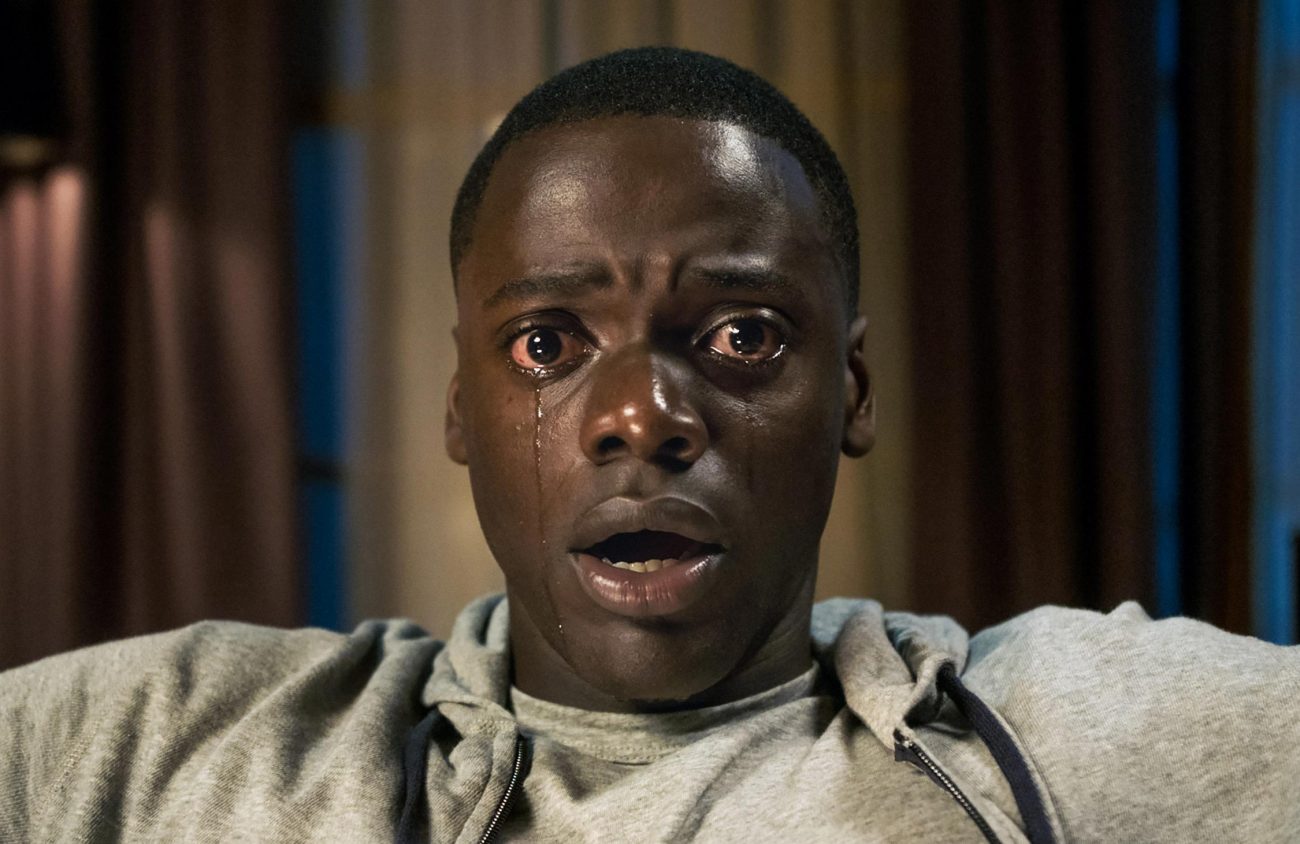Get Out’s opening scene appears, at first, disconnected from the main story — a moment that simply sets the stage. As a young black man lost on suburban streets jokes on his phone, a car pulls up alongside him. Just that is already creepy; it should remind you of countless images of horror — from the movies, and from real life.
How this scene connects to the rest of writer-director Jordan Peele’s debut feature film isn’t immediately clear, but the tone is deftly, elegantly set: What looks like a cozy quiet neighborhood to a white person looks like something else entirely if you’re black.
Elsewhere, photographer Chris Washington (the excellent Daniel Kaluuya) is about to go meet his girlfriend Rose’s parents. He’s nervous enough about the weekend trip, but becomes more so when Rose (Girls’ Allison Williams) admits she hasn’t told her family that he’s black. It’s fine, she insists. Her dad would’ve voted for Obama for a third term! They’re totally not racist.
At the sprawling, super-private house, Rose’s dad (Bradley Whitford) is way too chummy. Rose’s mom, Missy (Catherine Keener), is a psychiatrist dead-set on hypnotizing away Chris’s smoking habit. The household staff, all of whom are black, have smiles too wide and fixed. Something seems slightly off about them.
Everything seems slightly off. But is it? Or is Chris just being paranoid? A chat with Georgina (Betty Gabriel), the housekeeper, just rattles him further. When a whole gaggle of white people show up for an annual gathering, are they just old and oblivious to their rudeness — squeezing his arm, cracking jokes about sexual prowess, mentioning their favorite African-Americans — or is there something else going on? Something more nefarious?
I don’t want to tell you what’s really going on in Get Out, because figuring it out is part of the enjoyment of Jordan Peele’s whip-smart, perfectly structured social thriller. Peele knows how to use a sudden appearance, a shrieking score, a shadowy figure — but the horror he’s really interested in goes well beyond cheap scares and gleeful gore.
Peele builds his bigger point effectively into every scene: Get Out illustrates the way white people will appropriate just about everything from black people — their bodies, their style, their coolness, their art — but don’t value their selves. Black culture is desirable; black bodies are, horrifyingly, disposable.
Often, major releases that want to talk about racism do it in a safe, “inspirational” way that placates white audiences. Think of The Help, in which racism only comes from cartoonishly hateful folk; there are plenty of nice white people, too, and their presence lets white viewers distance themselves from the realities of pervasive, structural, institutional racism.
Peele’s villains aren’t those racist caricatures, but white liberals performing their idea of goodness — while using all their skills and privilege to sustain a system in which they benefit from racism. Funny, tense, clever and assured, Get Out speaks to the lie of the “post-racial” world without ever letting the white part of its audience off the hook. (Regal Valley River, Cinemark 17)
